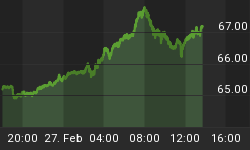For the most part, Russia’s oligarchs have chosen the cautious path of not complaining about Russian President Vladimir Putin’s invasion of Ukraine, and of refraining from biting the hand that has so generously fed them for decades, while keeping them out of politics. But even if they’re not complaining, some are fleeing, particularly in the wake of Putin’s Wednesday speech drumming up national anger against “traitors”.
Hours after Putin’s speech, several private jets left for Dubai, most likely carrying wealthy Russians who decided not to wait to find out whether Putin was questioning their loyalty to him.
Using flight tracking service FlightRadar24, Danish analyst Oliver Alexander reported at least four jets leaving Moscow for Dubai, describing it as an "exodus”.
Earlier he had noted in a post that "heavy air activity over the skies of Russian Federation, departing from Moscow to Northern Ural Mountains and Siberia in the last hours."
Unlike Western destinations, Dubai has not banned Russian air traffic and is welcoming any assets the Russian wealthy can move there to avoid international sanctions.
According to the Washington-based Center for Advanced Defense Studies, even before the invasion, some 40 businessmen or officials owned dozens of properties in Dubai.
There is no official data how many Russian rich moved their families and wealth to Dubai, but the readership of Dubai-based website Russian Emirates, has almost doubled to nearly 300,000 views in a week. With 83,000 views, the most popular question on the website is: "Can I get UAE citizenship?
Putin’s Wednesday speech called for the patriotic self-purification of Russian society, reminiscent of the days of Stalin, or Hitler. In the televised speech, as thousands of Russians attempt to flee, Putin said the country should undergo a "self-cleaning of society" to get rid of the "bastards and traitors”.
Some 15,000 people across Russia have been detained since the start of the invasion of Ukraine, and as many as 200,000 have left their country. Now, some oligarchs fear they are becoming targets, as well. Those fears are well-founded.
In his speech, Putin said he did not judge those with villas in Miami or the French Riviera, or those who couldn’t get by without “oysters or foie gras or so-called 'gender freedoms’”.
“The problem is they mentally exist there, and not here, with our people, with Russia,” he said.
"But any people, the Russian people especially, are able to distinguish true patriots from bastards and traitors, and will 'spit them out,'" he said of those who do not back the Kremlin. He also accused the West of attempting to splinter Russian society and comparing the West to Nazi Germany pre-WWII.
The U.S., the EU and the UK have responded to the invasion of Ukraine with economic sanctions on Russia, including measures targeting oligarchs in Putin’s inner circle. The US created the task force to target their lucrative assets, including yachts, artwork and mansions, while European countries already started seizing oligarchs’ properties and assets.
Some oligarchs have cautiously spoken out against the war, but none has directly criticized Putin or his actions. The latest to do so has been Mikhail Fridman, a banking magnate currently residing in the UK and worth some $13 billion.
Fridman complained about the EU sanctions, describing them as “groundless and unfair,” in an interview with Bloomberg, adding that he currently has an allowance of $3,300 per month and has to apply for a license to spend money. "I don't know how to live, I may have to clean the house myself," he said.
In the meantime, Putin himself officially earns $140,000 per year, owns an 800-square-foot apartment and two Soviet-era cars, but no one knows for sure how wealthy he really is, though by many counts, he is the richest man in the world. Some estimates put his wealth at around $200 billion, most of which is held in property and hidden behind complex financial schemes organized by his confidantes–some of which was revealed in several recent data leaks, including the Panama Papers.
















